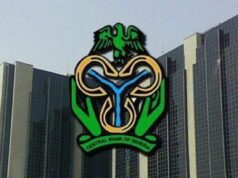“We think Nigeria needs to hike interest rates to draw foreign investment that will help backstop the naira.”
By Yvonne Mhango
FRI, FEBRUARY 17 2017-Last week in Abuja, we met policy makers and development partners. Our key takeaways were: 1) FX policy may be adjusted in the short term; 2) inflation is likely to slow; 3) any interest rate hikes will be moderate; 4) the economy will grow by less than 1% in 2017; 5) capex will pick up, but higher fuel prices imply an increase in the subsidy and upside risk to the budget deficit.
FX policy adjustment is in the works
We think the most probable outcome of an FX policy adjustment is a managed float, possibly a new peg, but a full float is unlikely. The failure of the June 2016 FX liberalisation is attributed to a poor implementation framework. We heard this is being “fine-tuned”. It was unclear whether the 60:40 rule would be removed, but the authorities are talking of replacing the de facto ban on 41 items with import tariffs. The $5bn build-up of FX reserves since November is a deliberate policy of the central bank (pent-up demand is c. $4bn). This is in keeping with plans for an FX policy adjustment. Making the interbank FX market work is key for the central bank. Improved liquidity, a smaller premium between the parallel and interbank rate, price discovery, and transparency would signal success. Our YE17 forecast is NGN447/$1.
Inflation is likely to slow
We believe the discontinuation of central bank financing (monetisation) of the budget deficit will help ease inflationary pressures in 2017. Base effects will also help. Over 50% of FX transactions take place in the parallel market, by one estimate. This implies inflation is already reflecting a large part of the 90% depreciation of the naira on the parallel FX market in 2016. Households are adjusting their spending patterns, according to the statistics office, by buying fewer imported items. This may partly explain the slowdown in MoM inflation to 1.1% in December, from a 2016 peak of 2.8% in May. Higher energy prices are an upside risk to inflation, which we see in the early teens at YE17.
Interest rates – any increase will be moderate
We think Nigeria needs to hike interest rates to draw foreign investment that will help backstop the naira. The central bank is not of the same mind. Its focus is on restoring growth. (And to its credit, it has built up FX reserves by $5bn, without raising rates.) We think plans to further adjust FX policy imply rate hikes are likely. However, they will probably be moderate. (Our YE17 policy rate forecast is 18%.) Curbing the monetisation of the deficit should help strengthen the policy rate as a signalling tool.
Modest growth
Fifty-to-sixty percent of Nigeria’s economy is directly impacted by oil, according to the statistics office. This explains the depth of the downturn in an economy where the oil sector accounts for only 9-10% of GDP. The IMF expects the Nigerian economy to grow by 0.5-1.0% in 2017 (we forecast growth of 0.5%). Agriculture, which accounts for 20-25% of GDP, will be a key driver of growth. Oil output is said to have increased to 2mbd in December, by the statistics office putting the annual average at 1.84mbd. If 2017 production can remain flat at 2mbd, we could see the oil sector grow for the first time since 2011. That would have a material positive effect on GDP growth.
Mhango is SSA Economist, RenCap









